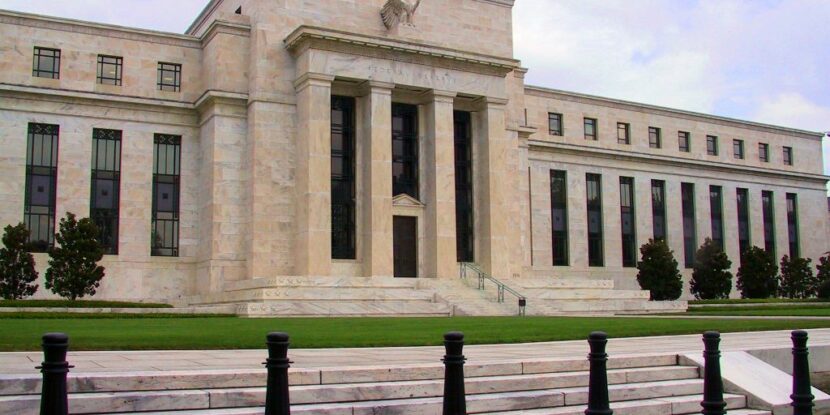
The liberal economic elite is circling the wagons to preserve the Federal Reserve. Alan Blinder denounces proposed laws which will “encourage congressional meddling with monetary policy.” Catherine Rampell takes up the cudgel against legislation mandating an audit of the Fed, on the grounds that “monetary policy is a complex technical apparatus that not everyone (read Congress) is equipped to operate.”
What is raising the liberal establishment’s ire? Three modest bills authored by Representatives Scott Garrett and Thomas Massie, and Senator Rand Paul, which seek to remind the Federal Reserve for whom they work.
The Federal Reserve is as close to the realization of liberal fantasy as one can find in Washington: an elite board of intellectuals able to raise and spend practically unlimited amounts of government money with no appropriations oversight. Naturally Professor Blinder and Ms. Rampell want to keep that good thing going.
But greater congressional involvement in monetary policy is both inevitable and long overdue, for two reasons. First, the number one complaint of American voters about the economy is not “inequality” nor the lack of job opportunities or even stagnant wages; it’s that their income doesn’t go as far as it once did, in terms of purchasing a quality of life. Seemingly out of nowhere, voters picked “rising prices” as their number one economic problem in 2012 exit polls, co-equal with jobs. In my own focus group work, voters are complaining inflation is eating into their standard of living, inflation nobody in Washington even recognizes exists. This is a monetary phenomenon, and would be ignored at the peril of the Republican congressional majority.
Second, monetary policy since the Great Recession has not been successful enough to justify a hands-off deference.
The guffaw line in Professor Blinder’s op-ed is that the Fed will this year start to exit its “hyper-expansionary monetary policies.” If the Fed had been pursuing hyper-expansionary monetary policies, we would have had hyper-expansion, instead of a “recovery” that leaves middle class worse off than they were in 1993, before the current crop of college freshmen were born.
Since 2008, the Fed has gone on a bond buying spree under the title “quantitative easing.” The proceeds of that buying spree (currently $2.8 trillion, called excess reserves) sit idle in banks’ accounts at the Fed with no benefit whatsoever to the economy.The Fed is preparing to make this situation worse by increasing the interest paid on these accounts, thereby further incentivizing banks to keep their funds idle.
The Fed is operating in uncharted territory here; historically, banks endeavored to keep no excess reserves at the Fed, precisely because these funds are unproductive. So monetary theory fails to explain the implication of this massive cash hoard, though it used to be argued “the money supply is negatively related to the amount of excess reserves” (Frederic Mishkin).
What’s more, the Fed and other banking regulators are aggressively using new powers under the Dodd-Frank monstrosity to discourage banks from making “risky” loans. This is great news for the federal government and corporations like Apple – it keeps their interest rates low and credit plentiful – but is not so great for Main Street and the dynamic sectors of the economy where good jobs are actually created.
Like the old saying about war and generals, monetary policy is too important to be left to the economists. Congress has turned a blind eye for too long to what is going on down the street at the Federal Reserve. But despite Professor Blinder’s and Ms. Rampell’s condescension toward Congress, the peoples’ representatives are right to insist that our monetary policy be more effective, and hold the Fed to account for its performance.
Steve Wagner is the founder and president of QEV Analytics, a Washington DC -based public opinion research firm.


